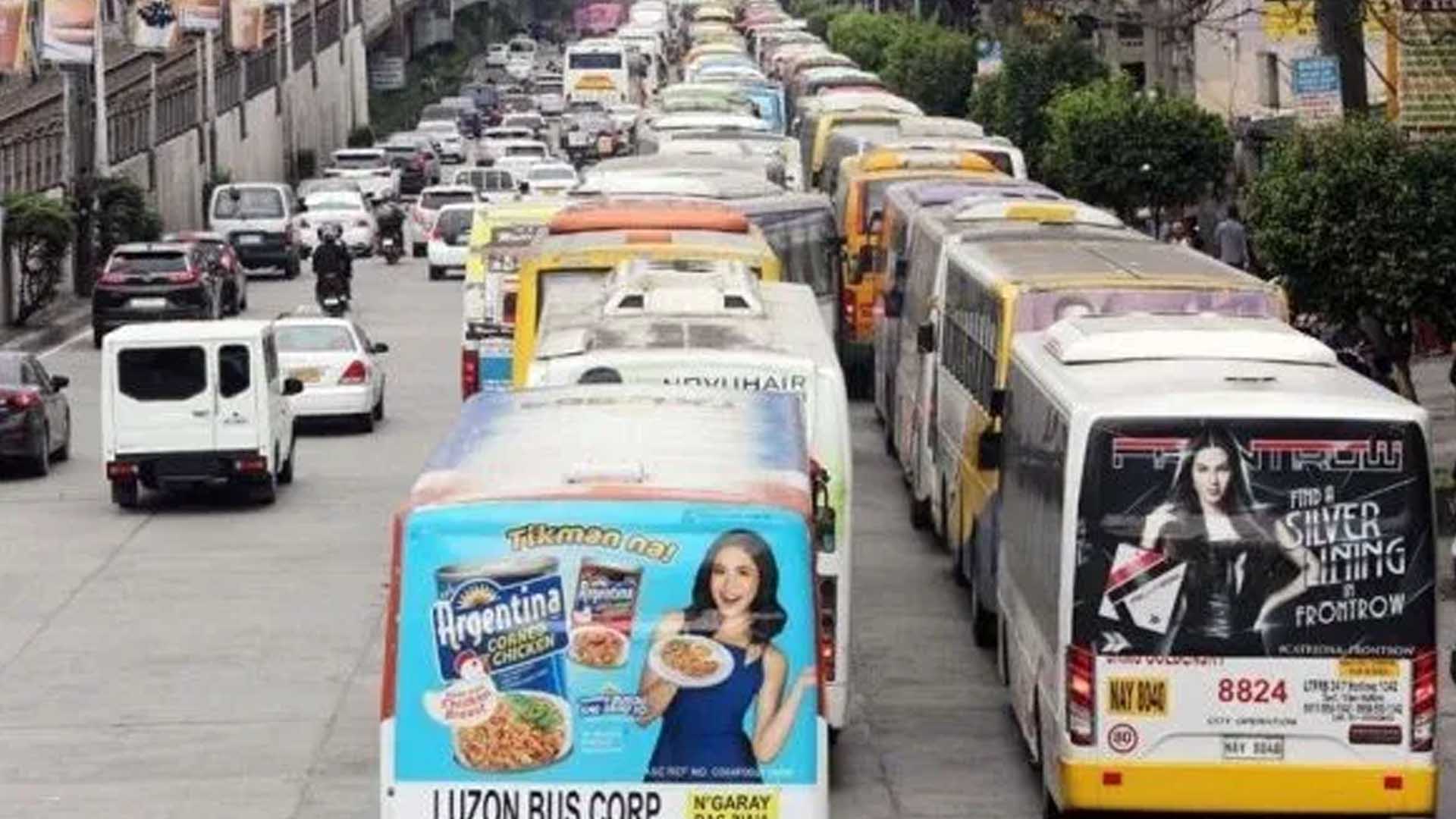All mass transport systems will be suspended under the Luzon-wide “enhanced community quarantine” (ECQ) from March 17 to April 12 to control the coronavirus disease 2019 (Covid-19) outbreak.
President Rodrigo Duterte decided to place Luzon under an enhanced community quarantine following reports that commuters continue to face long lines and crowds to get to their respective workplaces, defeating the purpose of the prescribed social distancing.
In a press conference in Malacañang on Monday evening, Cabinet Secretary Karlo Nograles said the suspension would include all forms of mass transportations such as public utility buses, jeeps, taxis, transport network vehicle services, among others.
Aside from the ban on public transportation, land, air, and sea travel will also be restricted while the movement of cargoes over the entire Luzon would continue unhampered.
“The idea is to keep everybody in home quarantine. Mindset should be, in case of doubt, stay at home,” Nograles said.
For outbound international passengers traveling from Luzon, he said they will be allowed to leave the country within 72 hours from the start of the enhanced quarantine.
“Those who want to leave will leave within that period. We assume that after 72 hours, it is your decision to stay here,” Nograles said.
Under the memorandum signed by Executive Secretary Salvador Medialdea on Monday, enhanced community quarantine means that the public will have to strictly remain indoors unless they need to access basic necessities.
There will be a curfew from 8 p.m. to 5 a.m. for everyone except health workers, peace and order officers, call center agents with valid IDs, media personnel, and local government officers will be exempted from the quarantine.
Malls will be closed, but private establishments providing basic necessities and such activities related to food and medicine production, banks, money transfer services, power, energy, water and telecommunications supplies and facilities, will be allowed to remain open provided they maintain strict social distancing measures.
Restaurants are only allowed to provide take-out services and will not be allowed to accept dine-in customers.
Since mass transport will be suspended, respective local governments will provide transport services to health workers without private vehicles.
The absence of jeeps, buses, trains is expected to minimize the risk of contracting and spreading the highly-infectious disease.
Land, air and sea travel will also be restricted, except travel of uniformed personnel for official business, especially those transporting medical supplies, laboratory specimens related to the Covid-19, and other humanitarian assistance.
Inbound international passengers, in transit upon effectivity of the ECQ, will be allowed entry, subject to applicable quarantine procedures if coming from countries with existing travel restrictions imposed by the Inter-Agency Task Force (IATF) for the Management of Emerging Infectious Diseases team.
However, all inbound Filipino citizens including their foreign spouse and children, if any, holders of Permanent Resident Visa, and holders of 9(e) Diplomat Visas issued by the Philippine Government will be allowed entry, subject to applicable quarantine procedures if coming from countries with existing travel restrictions imposed by the IATF.
Meanwhile, the movement of cargoes within, to and from the entire Luzon will be unhampered.
The Department of Transportation (DOTr) will be tasked to formulate guidelines for the accompanying crew or personnel of transiting cargoes.
Due to restricted movement, the memorandum also states that the Executive Branch will implement “a work from home” arrangement except for members of the Philippine National Police, Armed Forces of the Philippines, Philippine Coast Guard and health and emergency frontline services, border control and other critical services.
Affected daily-wage earners and poor communities will be provided with food assistance from the Department of Social Welfare and Development (DSWD).
The government will also be tasked to ensure that affected workers may avail of a moratorium on lease rentals, advanced pro-rated 13th month pay, reprieve in utility bills, and assistance to micro, small and medium-scale enterprises.
When asked how workers will travel during the quarantine period, Department of the Interior and Local Government (DILG) Secretary Eduardo Año said the local government may provide transportation to those in need and may draft their own ordinances requiring public utilities — like public transportation — to operate limited services.
For the business process outsourcing sector, Nograles said these companies must provide transportation or temporary accommodation for their workers starting March 18, otherwise they will not be allowed to continue operating.
Meanwhile, the Department of Health (DOH) on Monday reported the recovery and discharge of the first Filipino patient infected with coronavirus, bringing the total number of recovered patients in the country to three.
The DOH also reported two more confirmed coronavirus cases, bringing the total to 142 with 12 deaths as of 12 noon Monday. (PNA)









